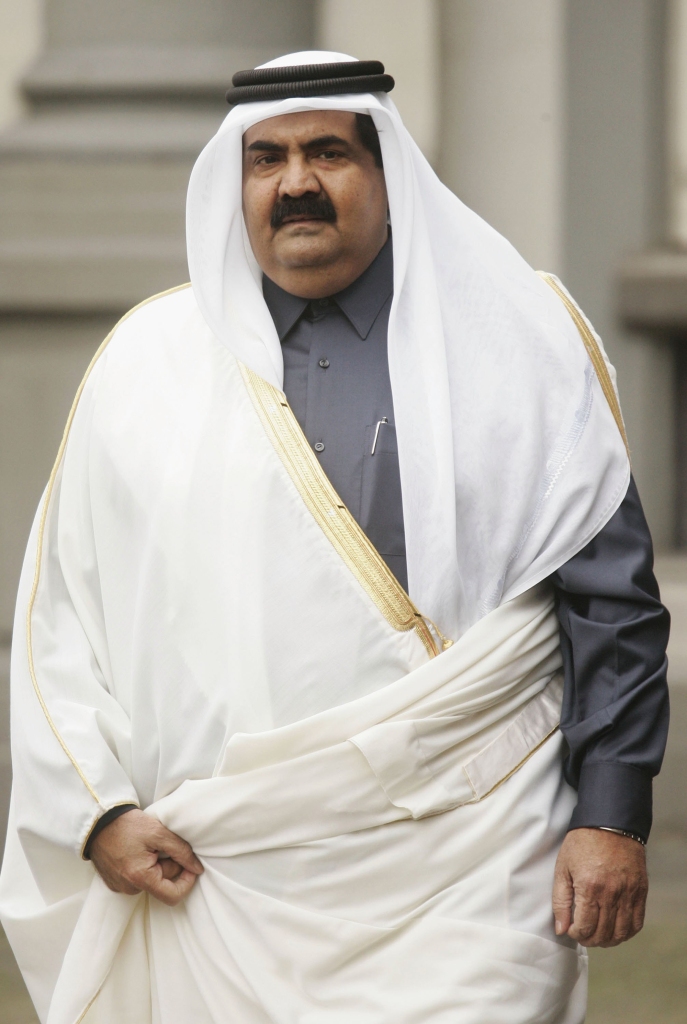Inside King Charles’ infamous ‘black spider memos’
King Charles has passionate views on everything from organic farming to climate change, education to modernist architecture — and for years the monarch has refused to keep them to himself.
Ignoring protocol that requires the British royal family to remain neutral, the heir to the throne was previously dubbed “the meddling prince” for making his views known to elected officials in Britain, and opining on world events.
In March 2022, he publicly called the Russian invasion of Ukraine “a brutal aggression,” criticizing Russian leader Vladimir Putin for causing “appalling suffering and devastation.”
Years earlier, on a royal visit to Canada in 2014, the future head of state compared Putin to Nazi leader Adolf Hitler after the Russian annexation of Crimea in March 2014.
Labour Party lawmaker Mike Gapes tweeted that in a constitutional democracy, “monarchy should be seen and not heard.”
Although many agreed with the sentiment, royal watchers were quick to point out that the Prince of Wales needed to keep his opinions to himself. The royal family’s duties are largely ceremonial, and as a rule, they do not get involved in political matters.
In 2015, a year after his Putin outburst, a series of letters that Charles had written to former British Prime Minister Tony Blair and other legislators were revealed in public after a decade-long legal battle. Dubbed the “black spider memos,” the cache of 27 letters — 10 of them handwritten by the prince — included a Sept. 8, 2004, missive lobbying Blair to cull badgers and ignore “the badger lobby” in the United Kingdom. In the same letter, Charles described to Blair a visit he had made to the military in Northern Ireland, and blasted the PM’s use of a British Lynx helicopter.
“I fear that this is just one more example of where our Armed Forces are being asked to do an extremely challenging job (particularly in Iraq) without the necessary resources,” Prince Charles wrote.
The “black spider” description is a reference to Charles’ spidery penmanship in black ink, although many of the missives are typed and with a few personal notes in Charles’s own hand appended at the end of the letters.

A statement from the then-prince’s office at Clarence House criticized the publication of the letters, a result of a legal challenge by The Guardian newspaper under Britain’s freedom of information law. But, ultimately, Clarence House defended the prince’s right to share his opinion with elected officials.
“The publication of private letters can only inhibit his ability to express the concerns and suggestions which have been put to him in the course of his travels and meetings,” the statement said.

The new king’s views are not confined to badgers and the military. A few years earlier, Charles inserted himself into a debate over the design of a luxury residential bloc of buildings in west London. Railing against British architect Richard Rogers’ modernist designs for the redevelopment of the Chelsea Barracks site, he made his views known in a letter to the Qatari royal family, who were financing the building.
The British royal lamented the “experiment with the very soul of our capital city” that Rogers was planning. The architect was eventually removed from the project — a move Rogers called an “abuse of power.” He accused Charles of subverting the “open and democratic planning process.”
But although he has had a reputation for being a crank, at least one royal expert believes that all of his opinions — on the environment, the military and architecture, among other — turned out to be right.
“As Prince of Wales he needed to turn his position into something that had meaning,” said Lady Colin Campbell. “I think he is a very conscionable man, who has demonstrated a great deal of foresightedness.”
In August 2021, Charles publicly criticized the country’s business leaders, telling them they must do more to save the planet “before it’s finally too late,” adding that humanity’s “only hope” was for the world’s business elite to join with leaders around the world in the “epic battle” to avoid “climate catastrophe.”

Despite his very public opinions in his capacity as Prince of Wales, Charles has said that he promises to keep his views to himself once he becomes king. He told the BBC in 2018 during a documentary on the occasion of his 70th birthday that he would stop speaking publicly once he becomes sovereign. “I’m not that stupid,” he said.
“The idea, somehow, that I’m going to go on in exactly the same way, if I have to succeed, is complete nonsense because the two — the two situations — are completely different.”
Lady Colin agrees. “He absolutely understand that as king there will be far more restrictions and far fewer freedoms, ” she said. “He understands the constitutional restrictions that have to apply if the monarchy is to continue.”
Read the full article Here


